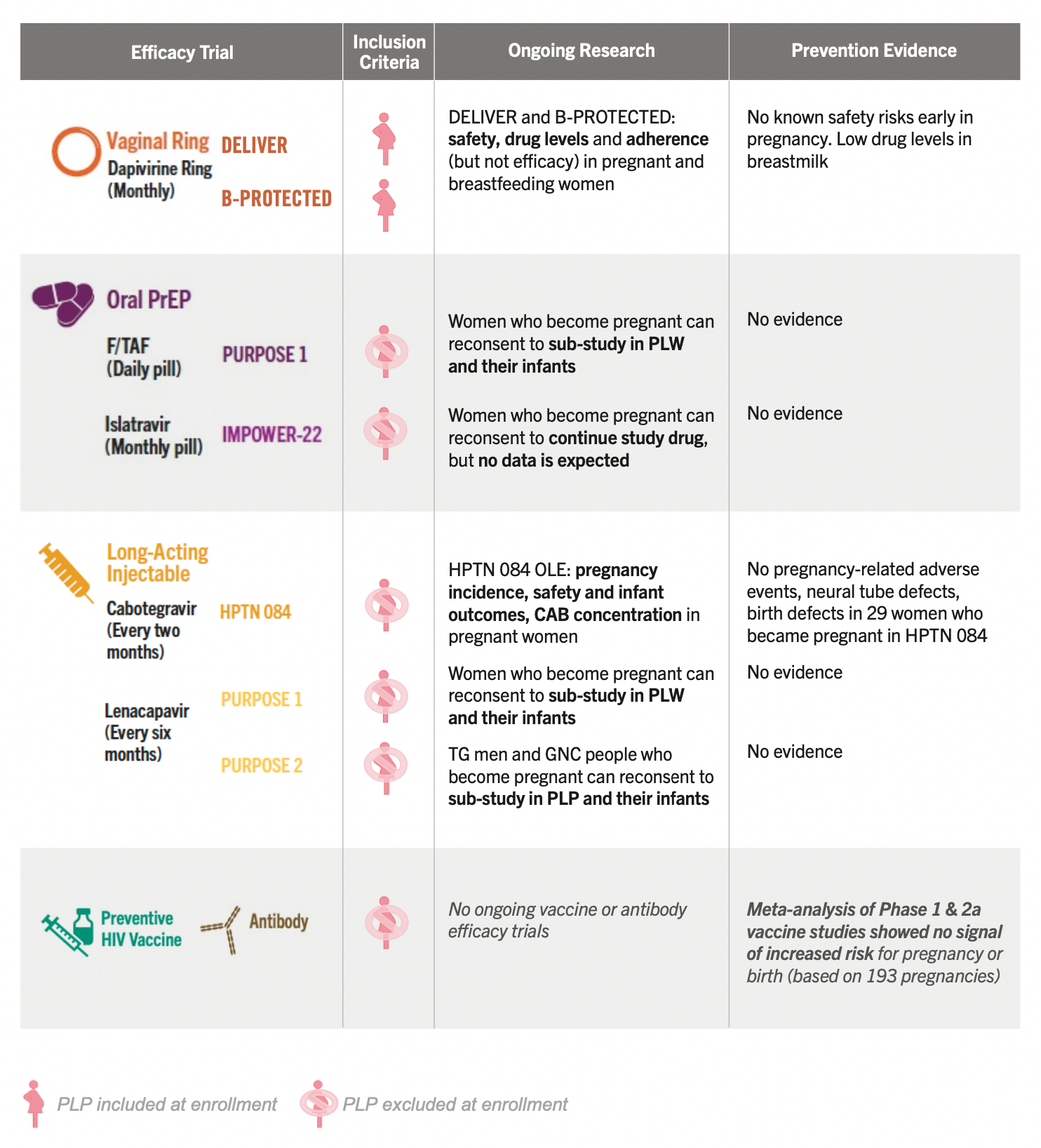top
For prevention options to meet the real life circumstances of the people who need them, we need an inclusive research agenda. Advocacy for the inclusion of pregnant and lactating populations (PLP) in research has been gaining traction in recent years, building on growing evidence, several global and national initiatives and an increased focus from prevention advocates. AIDS 2022 in Montreal featured exciting discussions advancing this work. If you’ve been taking part or just getting up to speed on the issue, AVAC has resources for you—including An Advocate’s Guide to Research in Pregnant and Lactating Populations; a dedicated page on AVAC.org with background and further resources; and a four-point action plan, Advancing HIV Prevention Research in Pregnant and Lactating Populations: Priority Advocacy objectives and Next Steps.
Pregnancy and the post-partum period after giving birth are times of heightened HIV risk. Cisgender women are two to three times more likely to acquire HIV during pregnancy and four times more likely post-partum than otherwise. Women who acquire HIV during pregnancy have an 18 percent chance of transmitting HIV to their newborn, which goes up to a 27 percent chance if they acquire HIV while breastfeeding. But HIV prevention options for (PLP) are limited, and their inclusion in research has been inadequate, resulting in evidence gaps across the research landscape for new prevention products.

(Image from AVAC’s Advocates Guide)
An approach based on principles of reproductive justice is reframing the research agenda for PLP. But action is needed from a variety of stakeholders to promote ethical inclusion rather than exclusion of pregnant people from clinical trials. A multi-stakeholder think tank led by AVAC and the PHASES project brought together advocates, researchers, ethicists, regulators and donors and resulted in a four point action plan, with additional contributions from Pangaea Zimbabwe AIDS Trust. The plan identifies next steps and four priority goals:
1) Embrace a reproductive justice framework:

(Reproductive Rights Framework, Image from PHASES, 2020)
2) Engage stakeholders in an early and sustained process in the design and conduct of clinical trials
3) Develop the necessary regulations to generate needed data for PLP to safely use new therapeutics
4) Ensure sound ethics reviews that include adolescent girls and young women in HIV prevention research.
An inclusive research agenda for PLP is essential for the HIV response, elemental to equity in global health, and key to having an impact on the epidemic. If you are interested in getting involved in AVAC’s work in this area, contact avac@avac.org
For other resources toward an inclusive research agenda, check out
- The Choice Agenda list serve: a global forum for advocacy on the latest in HIV prevention research, with monthly webinars on the hottest topics.
- No Data No More: A Manifesto to Align HIV Prevention Research with Trans and Gender-Diverse Realities
- Good Participatory Practice Guidelines: systematic guidance on effective stakeholder engagement in HIV prevention research.